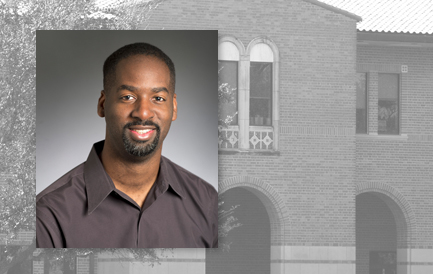C. Fred Higgs III leaves a trail of acronyms wherever he goes. There’s PFTL, his Particle Flow and Tribology Lab at Carnegie Mellon. There’s his philosophy of mentoring student researchers – the RTFS Engine, short for Research, Teaching, Funding, Service. And there’s RCEL, the Rice Center for Engineering Leadership, where he will become faculty director on July 1.
“For years, I’ve been teaching leadership and mentorship in a stealth mode, not announcing it to people while I was doing my scholarly work. Without good leadership, people and organizations cannot flourish and teams cannot win,” said Higgs, who will become the John and Ann Doerr Professor of Mechanical Engineering (MECH) when he joins the faculty of Rice University.
“Fred will lead RCEL and round out our team. He has been developing leaders all along, throughout his career as an engineer. He will serve as our faculty director. We didn’t want two of me,” said Kaz Karwowski, RCEL’s executive director since 2013.
Higgs earned a B.S. in MECH from Tennessee State University in 1995, and an M.S. and Ph.D. in MECH from Rensselaer Polytechnic Institute in Troy, N.Y., in 1997 and 2001, respectively. He was a postdoctoral research fellow at the Georgia Institute of Technology for two years, joined the Carnegie Mellon faculty in 2003 and was promoted to full professor in 2012. There he heads the Particle Flow and Tribology Lab and is a thrust leader in the NextManufacturing Center which focuses on the future of additive manufacturing.
Higgs’ research focuses on tribology, the study of interacting surfaces and the associated friction, lubrication and wear. His group focuses on problems involving sliding surfaces with particulate media flowing between them, from the nano- to the macro-scale.
At Rice, Higgs will set up his laboratory in George R. Brown Hall. He expects to work on developing near-frictionless sliding interfaces for improved energy efficiency, and bio-inspired surfaces resembling those found in nature.
“I’m a tinkerer at heart. I like to work on new technologies by first simulating them on a computer — in silico modeling or virtual computer experiments. We create computer simulations so advanced they yield an almost apples-to-apples comparison with the physical experiments in the lab,” Higgs said.
Higgs proposes another acronym to describe the industrial sectors where he sees his research at Rice having an impact: BEAN. That stands for biotechnology (biomedical implants, synovial joint body parts), energy (oil and gas, and renewable bio-energy via algae), additive manufacturing (powder processes) and nanotechnology (nanoparticles in microfluidics, semiconductor manufacturing). All of these industrial problems involve interfaces intentionally or unintentionally infiltrated by particles.
“Our work is interesting because it has so many applications. Our granular flow studies will advance the particle-flow research being done in biotechnology, where knee and hip implants sometimes fail after becoming filled with wear debris, and 3D printing, in which manufacturing advanced components depends on the science of powders,” said Higgs, who has written or co-written more than 100 scholarly articles.
This spring, Higgs was named a Fellow of the American Society of Mechanical Engineers (ASME), which in 2010 presented him with the Burt L. Newkirk Award, given annually to someone under the age of 40 who has made notable contributions to the field of tribology. In 2007, Higgs received a National Science Foundation CAREER Young Investigator Award, and in 2013 he and another faculty member received the Carnegie Mellon College of Engineering’s top teaching honor, the Benjamin Teare Award.
In Pittsburgh, Higgs has organized pre-college engineering workshops for at-risk minority high school students. He is co-founder and CEO of InnovAlgae, a Carnegie Mellon start-up company that develops technology to extract components from algae for use in nutrition, clean bio-energy and petrochemical-substitute products.
“I have an entrepreneurial side,” said Higgs, who while still an undergraduate co-founded goCarpeDiem, Inc., an academic and professional development training company for students and professionals. Its clients have included Lucent Technologies, NASA and MIT.
“My goal has always been to produce engineering students who are technically strong but have the leadership skills to lead organizations with what I call sustainable leadership. That ensures all stakeholders, including the company, shareholders, employees and local community, win when the technology wins,” Higgs said.
Higgs is a professor in the Alfred P. Sloan Minority Ph.D. Program, which works to diversify the Ph.D.-holding workforce by increasing the number of underrepresented minority Ph.D.’s in sciences, technology, engineering and mathematics.
Among his goals as faculty director of RCEL, Higgs said, will be “working with my team to develop tomorrow’s ethical, emotionally intelligent engineering leaders who will enter the engineering workforce ready to deliver innovative products and technologies.”
He added, “I think that recent gifts and investments made in Rice and the engineering school will enable Rice to become a national leader in training and developing its engineering students to become successful leaders, entrepreneurs and innovators. I’m looking forward to helping RCEL scale up its impact nationally and globally.”
Higgs and his wife Terese, who is a native of Houston, have three children.
–Patrick Kurp, Engineering Communications

